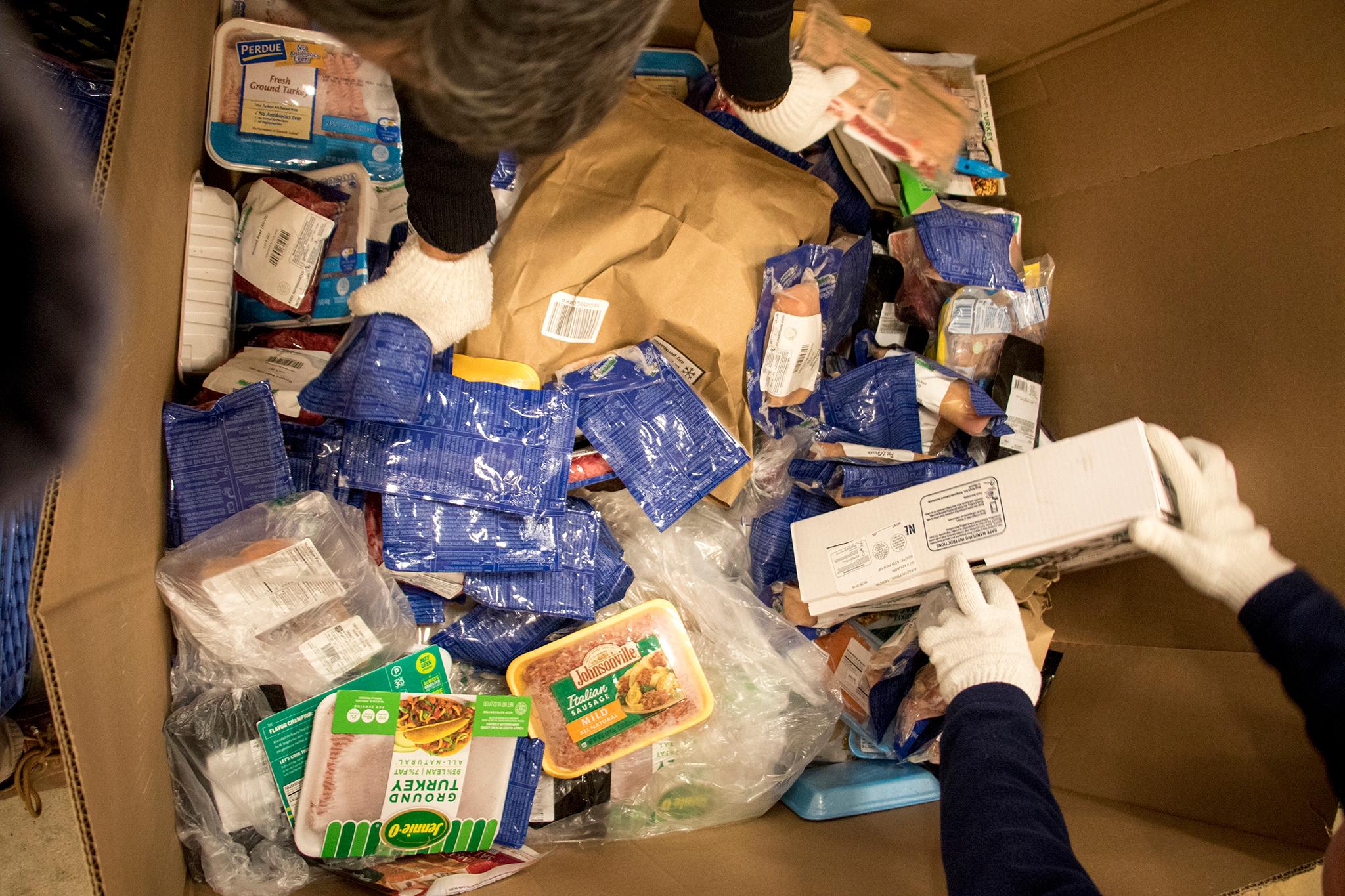In a nation of abundance, it's estimated that one in eight Americans needs help getting enough to eat.
"It's such an absurdity," said Adam Williamson, spokesman for Kroger's King Soopers and City Market stores in the Rockies. "It's an absurdity that needs to be addressed."
Supermarkets have addressed the problem by diverting to the needy food that might otherwise be thrown away. That includes perishable food nearing what are popularly called expiration dates, though the dates generally merely indicate when the item is at its peak.
Americans spend $218 billion a year, or 1.3% of GDP, growing, processing, transporting, and disposing food that is never eaten, according to ReFED, which brings together businesses, nonprofits and others dedicated to finding data-driven solutions to the problem of wasted food.
A Denverite reader wanted to know what supermarket chains were doing about this. It's true that, according to ReFED, businesses account for $57 billion of that wasted food. But people at home account for more -- $144 billion.
In 2017 King Soopers and City Market stores in Colorado donated enough food for 8.5 million meals, Williams said.
Amanda Peterson, Rocky Mountain regional safety specialist for Whole Foods Market, said that on average that grocer's Denver stores every week donate just under 1 ton of food, or roughly 1,200 meals.
Organizations such as the Food Bank of the Rockies, Metro Caring and Denver Food Rescue all receive supermarket donations in the Denver area. Food Bank of the Rockies, perhaps the biggest player, serves 30 counties across the northern half of Colorado and has a roster of nearly two dozen supermarkets and others that are part of its food rescue program. In addition to King Soopers, City Market and Whole Foods, the food bank's list includes Wal-Mart, Sam's, Target, Sprouts, Natural Grocers, Albertsons, Safeway, and Trader Joe's. The food bank has already collected 20.2 million pounds of food this year, ahead of the 21 million it collected all of last year.

The food bank distributes donated food to churches, food pantries, schools and others serving the needy in a city where, according to the mayor's office, one in six households experience periods of limited access to enough food. The food bank is a member of Feeding America, a national network of food banks and pantries that also conducts research on hunger and poverty. Feeding America, works with retailers like Kroger to divert food from landfills. Across the country in 2016, Feeding America rescued 3.3 billion pounds of food.
Janie Gianotsos, director of marketing and community relations for the Food Bank of the Rockies, said that once they start donating, some retailers have seen how much they had been throwing away and adjusted their business practices to prevent waste. Her food bank tries to raise awareness among supermarkets about both waste and the impact they can have on communities. Costco and Amazon are among retailers that have joined the Food Bank roster in recent years, she said. When she hears from smaller operations who want to donate food, she recommends organizations like Denver-based We Don't Waste, which picks up food from local caterers, restaurants, distributors and other food businesses and gets it to the needy.
Arlan Preblud, founder executive director of We Don't Waste, said he liked to partner even more with the food bank.
"The whole idea is to get the food out to people who can use it, not throw it away," Preblud said.
It seems like controlled chaos on a morning at the Food Bank of the Rockies.
Fork lifts laden with pallets beep as they move through giant warehouses, some of them refrigerators the size of small homes. Pop music blares from speakers. Packets of frozen meat thud into boxes as volunteers pack food to be shipped out.
The food bank organizes 20,000 volunteers every year into shifts and trains them to handle food safely. It sends out its own trucks to pick up food and coordinates connections between donors and nonprofits that do their own pickups.

Thoughtfulness and attention to detail also is necessary at the grocery store end. At Whole Foods, the first step is to determine whether food that can't be sold is safe.
"If it's spoiled meaning it's no longer safe for consumption, we compost our food waste," she said. "If it's still okay but does not meet Whole Foods Market standards, then we look to see if other teams within the store can use it; for example, a prepared food team may be able to feature the ingredient in a recipe."
Food that is safe to eat but not usable in Whole Foods stores is donated, she said.
Kroger's Williamson said produce, for example, past the point of peak freshness in his stores is bagged in red nets to indicate to customers they can get it at a discount and made available for sale for another 24 hours. If it's still not sold and still edible, it's set aside for food banks. Produce past the point of peak freshness will still be good at home for several days, Williamson said.
Kroger pledged last year to increase food donations and reduce food waste with a goal of eliminating hunger in the communities where it operates and waste in its stores by 2025.
"It's not something a big company should do to make itself look better," Williamson said. "It's the right thing to do."
If you want to explore what you can do to keep food out of landfills, you might consult the Waste Free Kitchen Handbook, by a National Resources Defense Council scientist named Dana Gunders who offers tips on planning meals, shopping and eating deliberately. Consumers can store produce differently and re-imagine -- instead of tossing -- leftovers. Perhaps the money you save putting her advice to use can be donated to a food pantry.












